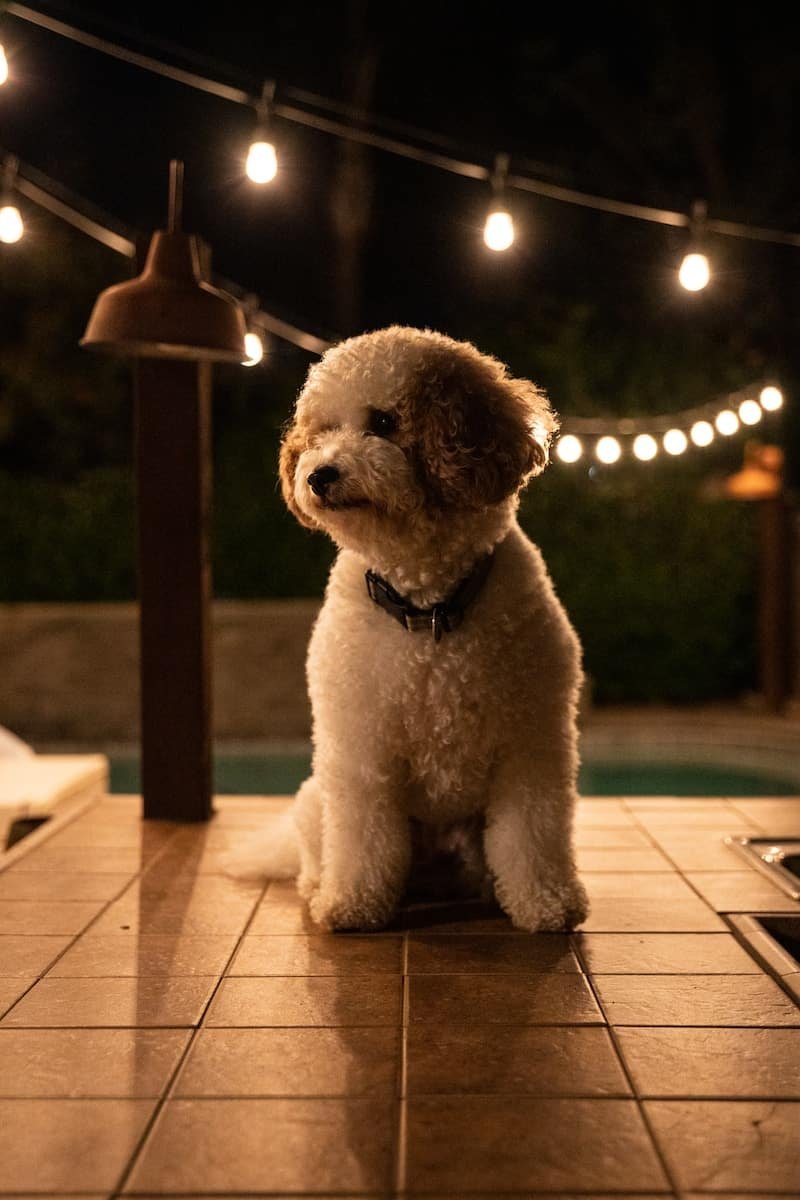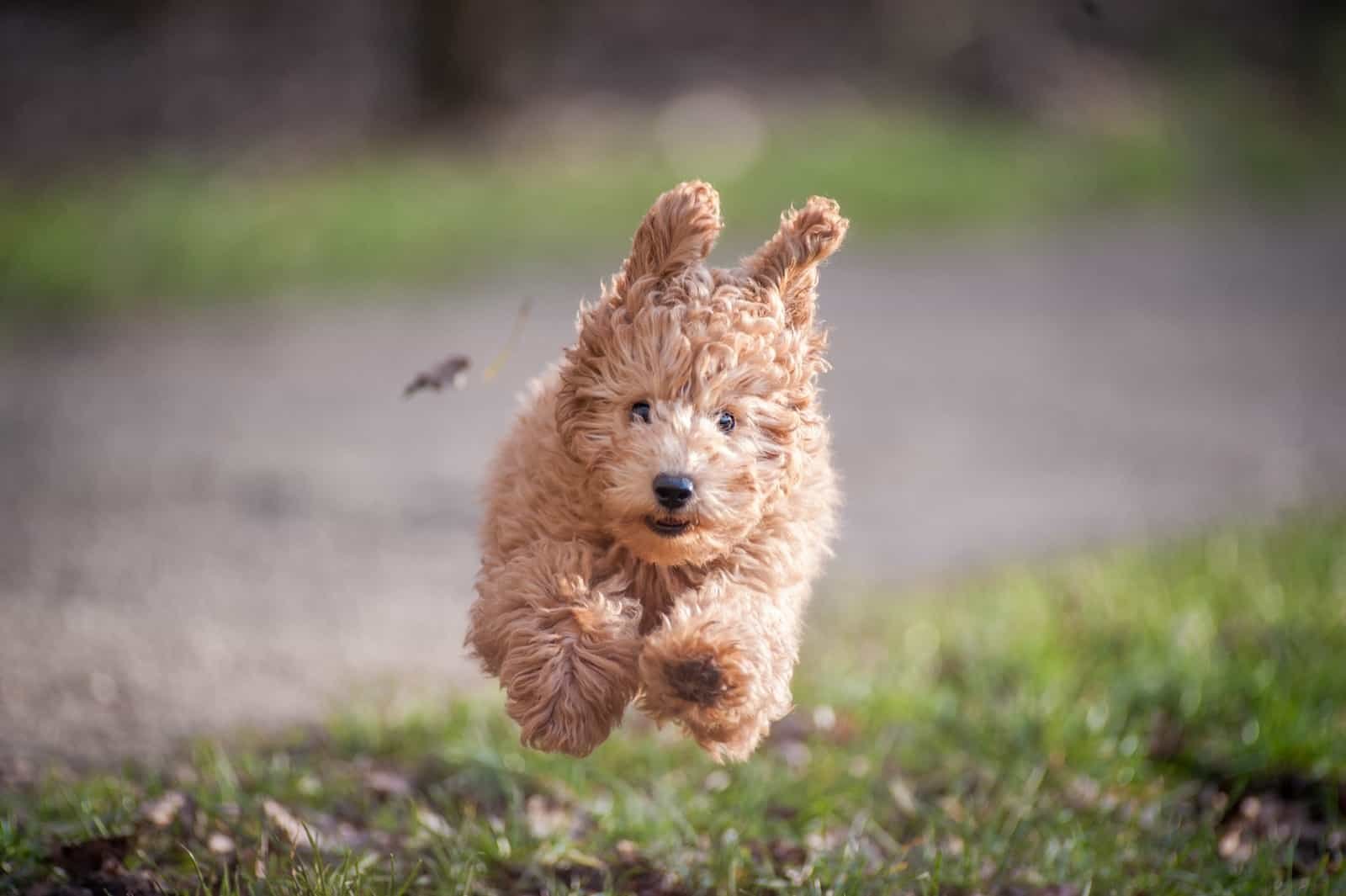
The Miniature Poodle, a beloved and iconic breed of dog, is known for its intelligence, loyalty, and lighthearted personality. But what makes this pint-sized pup so popular? With their small size and big attitude, these dogs are the perfect family pet. From their history to their health concerns, this article will explore everything you need to know about Miniature Poodles. Strap in and get ready to learn all about these adorable little pups!
About This Guide
- Real Experience: Written by poodle enthusiasts with years of hands-on experience caring for and training poodles.
- Expert Reviewed: Content verified by certified dog trainers and veterinary professionals.
- Fact-Checked: Information sourced from the AKC, veterinary journals, and breed specialists.
- Last Updated: November 2025
Definition of Miniature Poodle
The Miniature Poodle is a small, intelligent breed of dog that is part of the larger poodle family. Miniature Poodles typically range from 11 to 15 inches in height and weigh between 10 and 15 pounds. They have a thick, curly coat that is usually clipped into a stylish “puppy cut” or “teddy bear” style. This breed is known for its intelligence, loyalty, and lively personality. They are highly trainable and do well with agility courses and obedience training. Because of their size and temperament, Miniature Poodles make excellent therapy dogs and are often used as service animals. They are an incredibly popular breed, probably due to their small size, intelligence, and friendly nature – perfect for families!
The Miniature Poodle is a wonderful and loyal companion for families of all sizes. With its intelligence and lively personality, this breed always brings joy to its owners. Get ready to learn more about their history in the next section!
History of the Miniature Poodle
The Miniature Poodle is a breed that has been around since the 19th century. It was originally bred by the French aristocracy as a water retriever and to be used for truffle hunting. The breed quickly gained popularity, and it wasn’t long before this small and intelligent pup became one of the most popular breeds in Europe.
In the U.S., the Miniature Poodle is recognized by all major Kennel Clubs, including the American Kennel Club, United Kennel Club, and Canadian Kennel Club. It is also a part of many other organizations, such as Therapy Dogs International and American Pet Registry Incorporated.
Miniature Poodles are known for their intelligence, loyalty, liveliness, and easy-going temperament. They are very trainable and do well with agility courses, obedience training, and other activities that require mental stimulation. They have an average life expectancy of 12 – 15 years and are generally healthy breeds; however, they are prone to certain health issues such as hip dysplasia, patellar luxation, dental disease, legg-perthes disease, etc.
Miniature Poodles require daily exercise but can adapt well to any living situation or climate (including cold water). They need regular grooming to keep their coat clean and healthy; clipping or trimming their curls every 6 to 8 weeks helps to maintain their unique style. People with allergies may find this breed suitable because of its minimal shedding quality; it is important, however, to still groom them properly regularly for optimal results.
Characteristics and Traits
The Miniature Poodle is a breed that is known for its intelligence and adaptability. They have an average life expectancy of 12-15 years and have good health. This pup has an energetic personality and loves to play, making them great companions for active families. Miniature Poodles are also very intelligent breeds, which makes them ideal family pets, as they can be easily trained with the right guidance. They thrive on attention and do best when given plenty of love and affection from their owners.
Miniature Poodles are also very loyal companions who form strong bonds with their families. They have an average activity level but can adjust depending on the lifestyle of the family they live in; however, it is important to ensure they get enough exercise daily to maintain their energy levels. Miniature Poodles are also known for having an excellent sense of smell, which helps them detect danger or possible threats in the surrounding environment quickly.
Miniature Poodles require regular grooming to keep their coat looking its best, but this breed does not shed much, so it’s easy to keep clean with minimal effort. It should be noted that this breed is more sensitive than some other breeds, so proper training techniques should always be used when teaching commands or tricks.
Miniature Poodles make for an ideal companion for the active family looking for a pup with plenty of love and loyalty. Ready to learn more about them? Next, we’ll dive into their physical appearance!
Physical Appearance
The Miniature Poodle stands around 12-15 inches and weighs between 10-20 pounds. They have a square shape with a rounded head and muzzle, almond-shaped eyes, small ears that hang close to the head, and a docked tail. Their coat is curly, dense, and it comes in colors such as black, white, apricot and brown.
Miniature Poodles are quite active for their size; they need regular exercise to stay healthy mentally and physically. They require little maintenance in grooming; however, occasional brushing is recommended to prevent tangles from forming in their coats.
This breed is known for being highly intelligent and easy to train, making them great pets for people who want an active but obedient companion. The Miniature Poodle loves interacting with its family members, so they should be kept around plenty of people or other dogs if possible. They make excellent watchdogs because of their alertness, but they are not aggressive by nature.
The Miniature Poodle is an ideal companion for families looking for an active pup that loves interacting with its owners – requiring minimal maintenance while still providing plenty of love!
Temperament and Personality
The Miniature Poodle is a breed that has a bright and cheerful personality, making them the perfect companion for families. They are intelligent, loyal, and loving dogs that enjoy interacting with their owners. This breed loves to please its human companions, which makes them easy to train. The Miniature Poodle is an active dog with plenty of energy; they require a daily exercise in order to stay healthy and happy. However, they can adjust their activity level depending on the climate – preferring warm weather over cold temperatures.
This breed is known for being quite independent and self-sufficient, needing minimal maintenance when it comes to grooming or exercise. Although they can be left alone for short periods of time, they should not be left alone for extended periods, as this can lead to separation anxiety. The Miniature Poodle loves spending time with its family members and will thrive when given plenty of attention and affection. With proper training and socialization from a young age, the Miniature Poodle can grow up to be a well-rounded pup that everyone in the family will love!
Activity Level
The activity level of Miniature Poodles varies depending on their individual personalities and the climate they live in. In warm weather, these energetic pups can remain active throughout the day, with plenty of playtime and exercise to keep them happy. In colder climates, however, their energy levels decrease as they prefer to stay inside where it’s warm. On average, Miniature Poodles require around 30-60 minutes of exercise each day to meet their physical and mental needs.
This breed loves having a job to do, such as playing games or engaging in interactive activities like agility or obedience training. They are also great at retrieving items, making them excellent water retrievers! Mental stimulation is just as important for this breed as physical activities – so be sure to provide your pup with plenty of toys and puzzles that will challenge their brains. With proper exercise and mental stimulation, your Miniature Poodle will be a healthy and happy pup!
Intelligence and Trainability
Poodles is one of the most intelligent and trainable breeds of dog. They can learn quickly and can be taught a variety of commands, tricks, and behaviors. Training should begin early in their lives so they can get used to commands and expectations; this will help them grow into well-mannered pups that know how to behave around people and other animals.
Miniature Poodles are eager to please their owners, making them easy to train. Positive reinforcement is often the best way to train these pups, as they respond well to praise, treats, and verbal cues. With patience and consistency, Miniature Poodles can learn basic commands like “sit,” “stay,” “come,” and even more complex ones such as retrieving items or taking part in agility courses.
These intelligent breeds also excel at problem-solving activities, such as fetching toys or opening doors with their paws. Such activities not only provide physical exercise for your pup but also stimulate their minds by teaching them new skills. As long as your pup is given plenty of love, attention, and positive reinforcement while training, you’ll find that the Miniature Poodle is a great companion who loves learning new things!
Care Requirements and Health Concerns
Miniature Poodles, like all breeds of dog, require regular care and attention in order to stay healthy and happy. They need a nutritious diet, daily exercise, mental stimulation, and plenty of love and affection. It is also important to keep them up-to-date on all their vaccinations and preventive care, such as flea and tick treatments.
When it comes to health concerns, Miniature Poodles are considered a healthy breed but they can be prone to certain conditions such as hip dysplasia, legg-calve-perthes disease, patellar luxation, dental disease and other genetic disorders. While these conditions are not common among this breed, it is important to be aware of the potential risks so that you can provide your pup with the best possible care. Regular visits to the vet for check-ups can help detect any issues early on so that treatment can be administered if necessary.
Finally, it is important to note that Miniature Poodles should not be exposed to cold water, as their bodies are more susceptible to hypothermia than other breeds of dog. Providing them with a warm environment and avoiding activities such as swimming in cold waters will help keep your pup safe from harm. With proper care and attention, Miniature Poodles can live long happy lives!
With the right amount of care and love, Miniature Poodles can be wonderful companions for many years to come! Now let’s explore the grooming needs of this beautiful breed.
Grooming Needs
The grooming needs of Miniature Poodles are relatively minimal compared to other breeds. They need regular brushing and combing to keep their coats looking healthy, as well as occasional trimming or clipping for their feet, face, and tail. Their nails should also be trimmed regularly. It is important to establish a grooming routine with your pup from an early age in order to ensure they are comfortable with the process and so that you can identify any potential health issues before they become serious.
Besides these basic grooming needs, it is important to make sure your pup’s ears are checked regularly for signs of dirt or infection. A cotton swab dipped in warm water can be used to clean the inside of their ears gently. Finally, if your dog has been swimming or playing outdoors, it is recommended that you give them a bath at least once a month using a mild shampoo specially planned for dogs. With just a little of care and attention, you can ensure that your Miniature Poodle looks great and stays healthy!
Shedding Level
The shedding level of Miniature Poodles is very low compared to other breeds. This makes them a brilliant choice for people with allergies, as the amount of fur and hair that they leave behind is minimal. Keeping up with regular brushing and combing will help to reduce any potential shedding and ensure their coats remain healthy. They also benefit from occasional trimming or clipping, particularly around their feet, face and tail, as well as nail clipping regularly. With proper grooming, you can make sure your Miniature Poodle looks its best while keeping allergens to a minimum.
Life Expectancy
Miniature Poodles have an average life expectancy of 12-15 years. This is slightly longer than other breeds of the same size, such as Chihuahuas and Toy Poodles. Proper care and a healthy lifestyle can help extend your Miniature Poodle’s lifespan even further. Regular vet visits and vaccinations are important for any breed, but it’s especially important to keep up with preventative care for small breeds like the Miniature Poodle. Providing them with a balanced diet, plenty of exercise, mental stimulation, and cold water to drink can all help ensure they live their longest and healthiest life possible.
Common Health Problems
Miniature Poodles are a healthy breed, but like any other dog, they may be prone to certain health problems. Some of the most common include hip dysplasia, legg-calve-perthes disease, and patellar luxation. Miniature Poodles are also prone to dental disease because of their smaller mouths and more crowded teeth. Fortunately, these issues can usually be managed with proper diet and exercise and regular visits to the vet for preventative care. In addition, it’s important to check your Miniature Poodle’s vital organs such as its heart and blood supply regularly in order to ensure that they remain healthy. With regular visits to the vet and proper care, you can help your Miniature Poodle live a long and happy life.
Did You Know?
Did you know that the Miniature Poodle is one of the most popular breeds in the world? It’s a beloved companion and show dog, known for its intelligence and grace. The breed is thought to have originated in Germany during the 19th century, where it was used as a water retriever by French aristocracy.
Today, Miniature Poodles are still popular companions that thrive on mental stimulation and require daily exercise to remain healthy and happy. They have an average lifespan of around 12-15 years and their activity level typically increases with age. They also make great pets for people with allergies because they shed very little fur.
Miniature Poodles are recognized by all major kennel clubs in Europe and North America. As such, they are held to a high standard of care that often includes regular grooming, socialization, and veterinary checkups. With proper care, these intelligent little dogs can bring joy into your life for many years to come!
Overall, Miniature Poodles make wonderful four-legged companions that bring joy and friendship into the lives of their owners. Ready to find out how they stack up against other breeds? Stay tuned for our next article, where we compare Miniature Poodles with other popular breeds!
Compare Breeds
Do you ever wonder how different breeds compare to one another? While many people believe all dogs are created equal, this is far from the truth! Each breed has its own unique traits and characteristics that can make it better suited for certain lifestyles or activities.
For instance, some breeds may have a higher energy level than others, making them more suitable for active owners. Meanwhile, other breeds may be more laid back and require less exercise. Additionally, some breeds may be more predisposed to developing certain health conditions than others.
Besides physical traits, there are also behavioral differences among breeds. Some dogs may be known for being intelligent, while others might have a reputation for being stubborn or independent. It’s important to research each breed thoroughly before deciding about which one is right for you and your family.
By comparing different breeds side-by-side, each pet owner can find the perfect match for their lifestyle and home environment. Whether you’re looking for an athletic running partner or a loyal lap dog, there’s sure to be a breed out there that fits your needs!
Frequently Asked Questions
What should I know before getting started?
Every poodle is unique, so patience and consistency are key. Start slowly and adjust based on your dog’s response.
How long does this typically take?
Results vary, but most owners see progress within 2-4 weeks of consistent effort.







